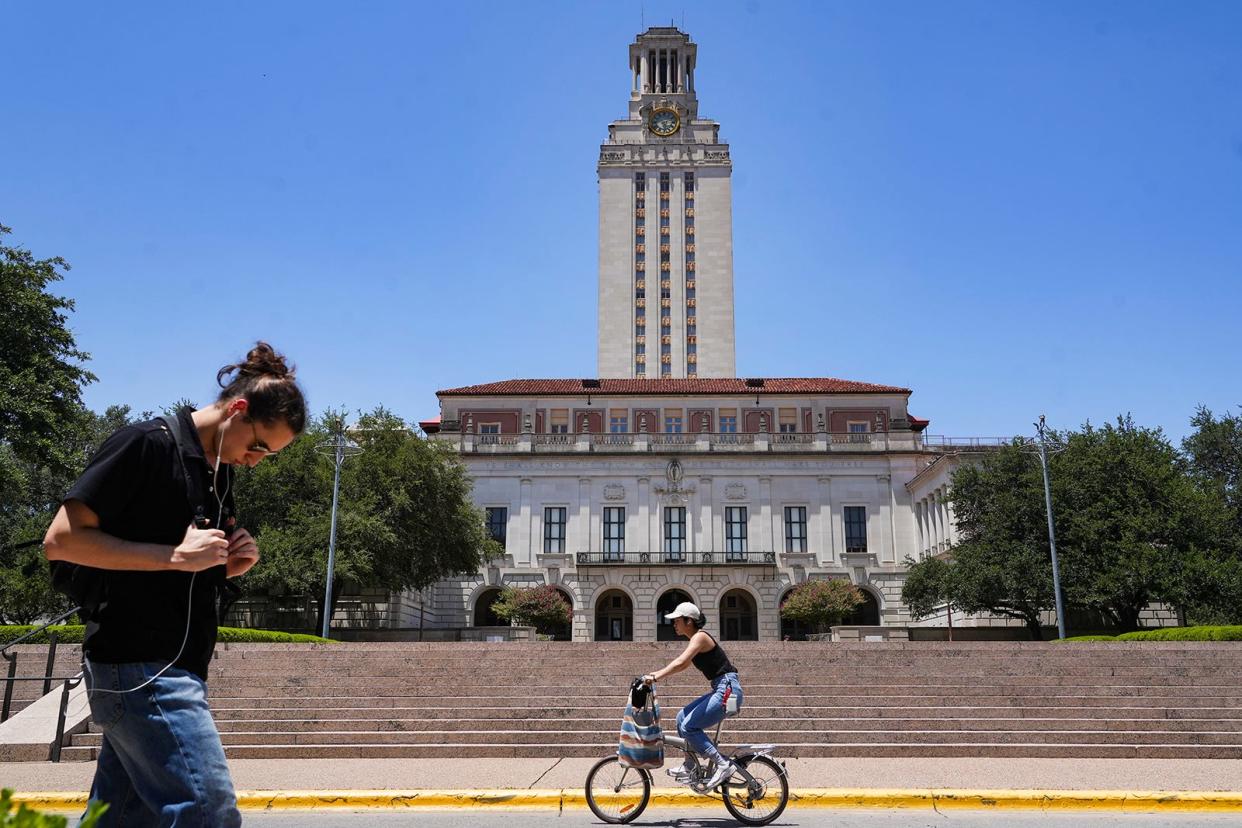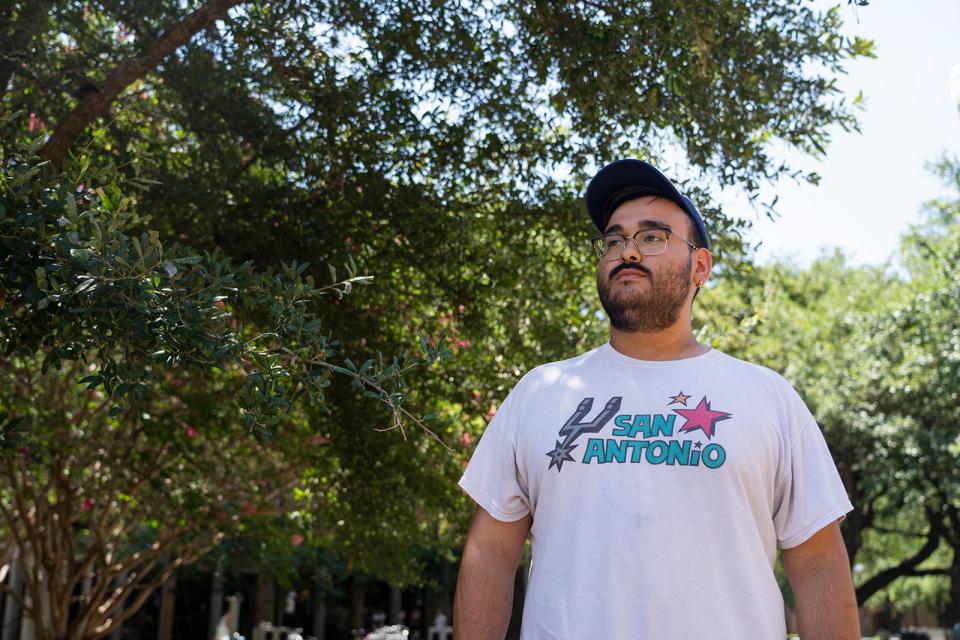U.S. Supreme Court overturns affirmative action. Here's what it means for Texas colleges.

The U.S. Supreme Court issued a long-anticipated ruling Thursday prohibiting the consideration of race in public and private college admissions nationwide, which will affect thousands of students in Texas applying for colleges and universities.
In a 6-3 ruling, the nation's highest court struck down race-conscious admissions when it issued a ruling in separate cases that conservative nonprofit Students for Fair Admissions brought against the University of North Carolina and Harvard University, challenging their admissions practices.
The court found that the admissions systems at both schools violate the equal protection clause of the 14th Amendment. The ruling said, however, that schools could still consider an applicant’s discussion of how race affected their life, as long as the discussion is "concretely tied to a quality of character or unique ability that the particular applicant can contribute to the university."
"Because Harvard’s and UNC’s admissions programs lack sufficiently focused and measurable objectives warranting the use of race, unavoidably employ race in a negative manner, involve racial stereotyping, and lack meaningful end points, those admissions programs cannot be reconciled with the guarantees of the Equal Protection Clause," Chief Justice John Roberts wrote in the majority opinion.
Several states, including Michigan and California, already have bans on considering race in college admissions. Texas is one of 41 states where the practice had remained legal, though several colleges in the state have opted not to consider race as a factor.
The decision comes seven years after the U.S. Supreme Court upheld the University of Texas' use of race in its undergraduate admissions process in the Fisher v. University of Texas case. In that case, Edward Blum, founder of Students for Fair Admissions, lost his challenge to UT’s race considerations.
More: Affirmative action: The next legal battle over race and education has already begun
After Thursday's court ruling, colleges and universities in Texas will no longer be able to consider race in their admissions practices. Here's what you need to know about what the ruling means for them:
How will the ruling affect the admissions for Austin universities?
The end to race-conscious admissions will only affect a few Austin-area universities that currently consider race in their holistic admissions process, although it will prohibit all schools from doing so in the future.
Several colleges and universities, including Texas State University, Concordia University Texas and Southwestern University, already don't consider race in their admissions, and Austin Community College has an open admissions process, meaning it accepts all students who apply to the school.
Other schools in Austin, including UT and Huston-Tillotson University, will have to stop their use of race-based admissions.
UT is the only public university in Texas that uses race-conscious admissions in undergraduate admissions, although several private colleges and public graduate programs in Texas consider race as well.
More: The Texas legislative regular session is over. What higher education bills passed?
However, unlike major flagship universities in other states, admissions at UT won't be as affected by the ruling due to the school's unique admissions process.
Under state law, 75% of UT's freshman class is made up of Texas students who finished in the top 6% of their high school graduating class and were offered automatic admission. The rest of the students are offered admission based on a holistic process that considers a variety of factors, including race and ethnicity.

How will the ruling affect diversity at Austin's higher education institutions?
Few universities in Austin currently reflect the diversity of the state's population, and college admissions experts told the American-Statesman that a ban on race considerations will make it more difficult for affected colleges to increase the percentage of students of color, including Hispanic and Black students, at their schools.
White students are currently the largest individual demographic at many of the area's higher education institutions, although the majority of students at nearly all of the colleges and universities in the Austin area are people of color.
When affirmative action was banned in states like Michigan and California, the percentage of Black and Hispanic students quickly dropped at the state's top universities.
While those percentages have since been increasing, the University of Michigan and the University of California system both argued in favor of affirmative action in amicus briefs to the Supreme Court, saying that efforts to increase diversity on campus without explicitly considering race in admissions had fallen short of their goals.
More: Many flagship universities don’t reflect their state’s Black or Latino high school grads
Still, some of the Austin universities that will be affected by the ruling told the Statesman that they believe they will still be able to recruit a diverse freshman class regardless of whether they can consider race in admissions.
Yohannis Job, vice president for enrollment management at Huston-Tillotson University, said the ruling might decrease campus diversity at historically black colleges and universities across the U.S., but he said Huston-Tillotson University will continue to enroll high percentages of students of color due to the school's mission and history of providing educational access to historically marginalized groups.
"We are not worried about being able to continue to be diverse because being the first (university) in Austin, being historically Black college, with our mindset on being the foremost ... institution of higher education in Austin, I truly believe that we will continue to attract students that are Black, brown, Latino, Asian and international students," Job said. "We feel very strongly about that because that's why students come to" Huston-Tillotson University.
What can colleges do to recruit diverse students?
Stella Flores, a UT associate professor of higher education and public policy, said there's no clear successful formula for increasing diversity on campus without race-conscious admissions, but colleges can try to do so by investing in outreach and recruitment efforts, particularly in minority communities.
However, she said it will be more challenging for schools to do so after Gov. Greg Abbott signed Senate Bill 17 into law, which prohibits diversity, equity and inclusion offices in Texas public colleges and universities starting in 2024.
More: What is affirmative action? Growing number of Americans dislike practice
"We're not doing enough," Flores said. "And with SB 17, ... college access and completion is going to be decimated to 1960s levels unless we invest heavily in a completely new framework of how to think about college access and success."
Liliana Garces, a UT professor of educational leadership and policy, said if there are declines in the percentages of students of color due to the court's ruling, it will have negative consequences for the educational experience for all students.
"I think it will become even more critical and important for institutions of higher education and its leaders to reinforce that, despite the court's ruling, they are going to continue to engage in efforts that provide a welcoming environment for students so that they don't read this decision as sending a message that the doors of opportunity are closed off to them," Garces said.
This article originally appeared on Austin American-Statesman: U.S. Supreme Court overturns affirmative action in college admissions

